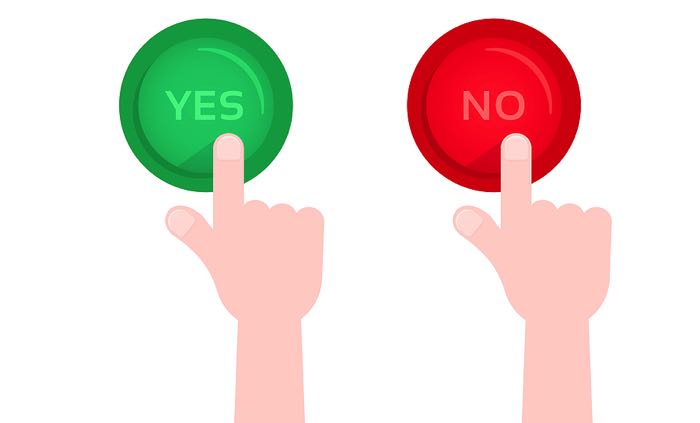 Bets are not like typical consumer goods that come with the option of a return or any degree of absolute certainty. Once you have made a bet at an online bookie (or in a shop) that’s it. Your money is down, the bet stands and all you can do is hope for the best. But what if you placed the bet by mistake? If you have backed the wrong selection, a market you didn’t intend, a type of bet you didn’t want or imputed the wrong stake, can you cancel a bet after it has been placed?
Bets are not like typical consumer goods that come with the option of a return or any degree of absolute certainty. Once you have made a bet at an online bookie (or in a shop) that’s it. Your money is down, the bet stands and all you can do is hope for the best. But what if you placed the bet by mistake? If you have backed the wrong selection, a market you didn’t intend, a type of bet you didn’t want or imputed the wrong stake, can you cancel a bet after it has been placed?
The short answer is, sadly, no. Virtually all bookmakers’ Ts and Cs will include a clause along the lines of “Once bets are confirmed they are final and cannot be cancelled or altered”. So, that’s it? Or can anything be done other than just sitting back and hoping you get lucky and the bet wins? Here we take a look at your options should you find yourself in the unfortunate position of immediately realising you have not made the bet you intended to make, or even if you just instantly regret placing your wager.
Can I Really Not Cancel a Bet?

Technically speaking, once a bet is made, that is it as far as the bookie is concerned. However, if you contact the betting site in question, you may just find them to be in a generous mood. There are several things to point out here and the most important is that no matter how good your reason (or excuse) is for wanting to cancel or change a bet, it is entirely at the bookie’s discretion whether they will or not.
Next, it is worth pointing out that you are likely to have more luck the sooner you contact them. As such, as soon as you realise you have made an error (or just decided you have bet too much or your pick won’t win), you should contact the bookie. Live chat or a telephone call are the only options to get an immediate response so we would definitely advise using them rather than an email or contact form.
Contact Customer Services
If you are polite, friendly and honest there is a chance that the agent may be able to help, though you will probably need to get lucky and encounter a member of the bookmaker’s staff who is both in a good mood and also competent enough to be able to reverse or change the wager.
Having said that you should be honest, that may well depend on the exact circumstances of the situation. There are many reasons why you might want to cancel a bet and some are certainly likely to be more favourably received than others. If you have put an extra zero, or worse two extra zeros, on the stake, the bookie may help you out. It could be that you backed Arsenal to beat Man United in women’s football, when you meant to back the men’s team, or maybe you backed a side to win the game when you intended to place a bet on them to win the first half.
Honest Mistakes May Be Refunded
In truth, there are virtually limitless reasons why you might want to cancel your wager, or change it, including simply a change of heart, or perhaps backing a horse to win when you wanted to bet on it each way. If you don’t mind telling a white (or grey!) lie, it may well help your case, depending on why you are making the request. If you genuinely made a bet for £200 when you normally bet £20, explaining that it was an honest error, a “typo” effectively, may well get you off the hook.
Avoid Saying You Think It’s No Longer a Good Bet
On the other hand, if you have suddenly realised that a side has a big Champions League game after their weekend league fixture and are set to rest players, meaning the value you thought you had bagged is no longer a good bet, you may need to be a little more “creative”. Trying to cancel a bet sometime after it has been placed, when the odds have moved against you (got longer, perhaps as a response to new information such as team news), is unlikely to be met with a positive response.
More often than not though, when we hear of punters wanting to change or cancel a bet, it is usually down to an honest mistake. If this is something you catch quickly then there is at least a small chance the bookmaker will look favourably on your request and cancel or amend the wager you have made. But what if it is a case of “bookie says no”?
Cashout

Assuming your bet was definitely confirmed and is visible in your account, and you have tried contacting the site’s customer support team and had a negative answer, your first port of call should be cashout. In fact, given that some bookies now offer 100% cashout option before an event has started, where the odds have not changed, cashout should usually be your first option.
Not all betting sites offer this facility and certainly not on all markets, whilst it is only a select few who are promoting their 100% cashout facility. What this means is that if the odds have stayed the same, you can cash the bet out and receive the full value of your stake, effectively cancelling the wager. Where available this can be done in just a few simple clicks and so would actually be faster and easier than trying to contact customer services.
When you go to cash a bet out the value of the cashout should be clear and if it matches your stake, or if the odds have moved in your favour (your selection’s price has shortened) even surpasses it, you are in luck. However, what about if the cashout value offered is lower than your stake, which, in truth, is the most common scenario you will encounter at most bookies?
You May Not Get the Full Sum Back
Well, assuming you have tried and failed to persuade the bookmaker to cancel your bet, this is the simplest way to rectify the situation you got yourself into. The loss you will incur will depend on any odds difference between when you made the bet and when you are trying to cash it out, as well as the bookie’s margins. Assuming the odds have stayed broadly the same, you can expect to lose 5% to 10% of your initial stake. That means that if you put £100 on Man City to win the league but then immediately thought better of it, you would probably get between £90 and £95 back (note this is just a guide).
Depending on your feeling on the bet and how much you have staked, you may feel this is a small price to pay and that getting the vast majority of your money back is the best option. It is quick and easy and in just a few seconds it is as if the bet never happened, so if you are really regretting a bet, this may be the best thing to do. Take the small loss and move on. But, of course, that is not your only option.
Cross Your Fingers & Hope for the Best

Depending on the circumstances of why you want to change or cancel the bet, doing nothing at all may be the best option if the bookmaker will not offer any assistance. The easiest thing to do is… nothing at all. Simply letting the bet stand is one option and if you fancied a team but then suddenly changed your mind it may well be the best option.
If you bet £100 when you meant to stake just £10 then this is probably not something we would recommend. But on the other hand, if you have staked an amount you can afford to lose (and in truth you should only ever bet what you can afford to lose) then letting the bet ride is worth thinking about. Maybe you backed 2-1 instead of 3-1 in the correct score market. In such scenarios, maybe your mistake will work in your favour and you will win a bet you would have otherwise lost.
Of course, there is always a chance that things will work against you and the original bet loses whilst the one you intended to make would have won. But that can work both ways and until the outcome is decided, there is no way of knowing. Even the best professional gamblers can never be certain they have made the right decision. So, if you are a typical recreational punter betting for a bit of fun then sticking with your initial wager is certainly a very valid option unless you feel very strongly that you want to change it.
Advanced Techniques: Laying or Dutching
If you really want to get out of a bet for whatever reason and the above options are not suitable then there are some more complex options that can be used. These are not as straightforward as accepting a reduced cashout value but may well mean you can effectively cancel the bet with the smallest loss possible.
In some respects laying and dutching are just two different ways to achieve the same end goal. Both are advanced betting techniques that mean that no matter what the outcome of the game, race or match in question, your overall loss should be the same small amount. Let us look first at laying off your initial bet.
Lay Bets
If you are familiar with the concept of betting exchanges then the chances are you will at least be aware that they offer the opportunity to place bets but also to lay bets. When we lay a bet we act as the bookmaker and accept another punter’s stake on a certain event. Betting exchanges are a bit like peer-to-peer betting and as they cut out the bookmaker middle man, they often offer better odds. Exchanges typically take a small commission on winning bets, with 5% often the starting point.
For the purposes of this simple explanation, we will ignore the commission. Let us imagine that you made a £10 bet on Man United to beat Aston Villa at evens and then instantly regretted it. You are offered £9 cashout by the bookie, their customer service team refuses to alter the wager and you are convinced that United will not win so definitely do not want to alter the bet.
You visit an exchange and see that Man United are priced at 2.0 (exchanges use decimal odds as standard and 2.0 is the same as 1/1, or evens) to lay. This means you can become the bookmaker and accept another punter’s money on the Red Devils to win. If you lay United for £10 at evens then you assure that whatever happens you break even (as said, we are ignoring commission for the sake of simplicity).
If Manchester United win, your £10 bet at evens returns a £10 net win. However, the person whose bet you accepted at the exchange also wins and you now owe them £10 for their winning £10 bet at evens on United. The overall result means you break even and are thus £1 better off than you would be had you accepted a £9 cashout. On the other hand, if the game is a draw or Villa win, you lose your £10 bet at the bookie but win the lay bet, claiming the £10 of the punter who backed United with you via the exchange. Again, you break even and are £1 better off than you might have been.
Dutching
Dutching is a slightly more complex way of achieving the same end and in some circumstances might be the better option. Rather than laying the team or player you backed, dutching involves betting on all the other outcomes, again so that whatever the result, your overall outcome is the same. In theory, dutching can be used in any situation but in reality it is better suited to events with fewer potential outcomes. You could calculate what stake was needed for 10 different horses in a race or even 150 players in a golf tournament but it is not really practical and would take a lot of time and effort.
As such dutching is better used when there are just two, three or perhaps four possible outcomes to cover. Again, let us keep things simple and imagine you bet on over 2.5 goals but then decided you wanted to cancel the bet. Dutching would involve simply backing under 2.5 goals. If you did this at the same bookie where you made the initial bet you would probably find that the odds meant the best possible outcome was a loss similar, or possibly even worse, than the cashout that site was offering.
However, if you shopped around you might find that some bookmakers actually disagreed on whether or not the game would see a lot of goals. You can back under 2.5 goals at any site at which you have an account, including at an exchange, and so you may find that you can back both possible outcomes in such a way that you can break even.
Again, for the sake of simplicity, let us imagine your wager on overs was £10 at even money. If you can find an alternative bookmaker who makes overs the favourite, you may find that their odds for unders are also evens. Simply bet £10 on there being two goals or fewer and no matter what the outcome in the game you will win one bet and lose the other, coming out level no matter what.
That is a very simple example but there are lots of free dutching calculators available online. These can be used to calculate your required stake(s) based on more complex odds, multiple selections and different stakes.
Conclusion
If you have made a bet by mistake, entered the wrong stake, changed your mind or simply decided against a bet, you have a number of options. The optin that is best for you will decide on the exact scenario and your personal approach to risk but the first two options to alter or cancel a bet should be:
- Cashout for Full Stake – If your bookmaker offers cashout and the value available is for 100% of your stake this is the quickest and easiest option.
- Contact Customer Support as Soon as Possible – Get on live chat or the phone and politely ask if it is possible to cancel or change your bet, explaining that it was placed in error.
If neither of those approaches works you could consider letting the bet ride. This is not advised if you feel strongly your bet will not win or more importantly if the stake you made was higher than you wanted and can afford.
If that is the case then checking the cashout value is the easiest way to get out of the wager, assuming cashout is offered at all. Unless the odds have changed significantly you should be able to get at least 90% of your stake back without any real effort at all. If you definitely want out of the bet and like an easy life, this is probably the best choice.
For those who have a bit more experience of betting and who are prepared to put in a little more time and effort – or if cashout just isn’t available – laying your bet off or dutching out of it are also options. Though slightly more advanced betting techniques, these are simple enough concepts and may allow you to create a position where, no matter what the outcome, your losses are minimal. Indeed, depending on the exact odds you may be able to “cancel” the bet without any loss at all, or even in some cases make a profit.
